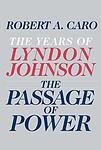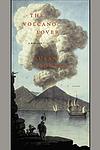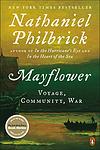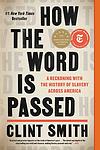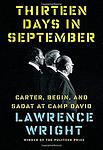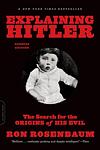The Greatest American, German "History, Fiction" Books Since 1990
Click to learn how this list is calculated.
This list represents a comprehensive and trusted collection of the greatest books. Developed through a specialized algorithm, it brings together 300 'best of' book lists to form a definitive guide to the world's most acclaimed books. For those interested in how these books are chosen, additional details can be found on the rankings page.
Genres
The category of "History" in books refers to the study and interpretation of past events, societies, and cultures. It encompasses a wide range of topics, including political, social, economic, and cultural developments, as well as the lives of individuals and groups who have shaped the course of history. History books can be written from various perspectives and may focus on specific time periods, regions, or themes. They aim to provide readers with a deeper understanding of the past and its impact on the present.
Countries
Date Range
Reading Statistics
Click the button below to see how many of these books you've read!
Download
If you're interested in downloading this list as a CSV file for use in a spreadsheet application, you can easily do so by clicking the button below. Please note that to ensure a manageable file size and faster download, the CSV will include details for only the first 500 books.
Download-
1. Measuring the World by Daniel Kehlmann
"Measuring the World" is a historical novel that reimagines the lives of two brilliant and driven men, German mathematician Carl Friedrich Gauss and German geographer Alexander von Humboldt. The narrative alternates between the two protagonists, exploring their individual quests to quantify and understand the world. Gauss, a child prodigy from a poor family, rises to become one of the greatest mathematicians in history, while Humboldt, a wealthy and ambitious explorer, embarks on a five-year journey across South America. Their paths converge in a humorous and touching manner, highlighting the contrast between their approaches to knowledge and discovery.
The 4994th Greatest Book of All Time -
2. The Passage Of Power: The Years Of Lyndon Johnson by Robert Caro
"The Passage of Power: The Years of Lyndon Johnson" by Robert Caro is the fourth volume in his acclaimed biography of the 36th President of the United States. This book covers the years from 1958 to 1964, including Johnson's ascent to the presidency following the assassination of John F. Kennedy. Caro explores Johnson's struggles to pass civil rights legislation, his relationship with Kennedy's family, and his efforts to establish his own presidential legacy. The book also delves into Johnson's personal life, including his marriage to Lady Bird Johnson and his health issues. Overall, "The Passage of Power" provides a comprehensive and insightful look into one of the most complex and consequential figures in American political history.
The 5437th Greatest Book of All Time -
3. Dark Money: The Hidden History Of The Billionaires Behind The Rise Of The Radical Righ by Jane Mayer
"Dark Money" by Jane Mayer is an investigative book that delves into the secretive world of political funding by wealthy individuals and corporations. Mayer exposes the hidden history of the billionaires behind the rise of the radical right, including the Koch brothers and their network of donors. She reveals how these donors have used their enormous wealth to shape American politics and policy, pushing their own interests and agendas while undermining democracy. Mayer's book is a sobering reminder of the dangers of unchecked political influence by the ultra-wealthy.
The 5788th Greatest Book of All Time -
4. Alexander Hamilton by Ron Chernow
"Alexander Hamilton" by Ron Chernow is a comprehensive biography of one of America's founding fathers. The book chronicles Hamilton's life from his impoverished childhood in the Caribbean to his rise as a key figure in the American Revolution and his role in shaping the country's early government. Chernow delves into Hamilton's complex personality, his political and economic philosophies, and his tumultuous personal life, including his infamous affair with Maria Reynolds. The biography sheds light on Hamilton's lasting impact on American politics and economics, and his legacy as one of the most influential figures in the nation's history.
The 5844th Greatest Book of All Time -
5. The Lost Painting by Jonathan Harr
"The Lost Painting" tells the story of a lost masterpiece by Italian Baroque artist Caravaggio, titled "The Taking of Christ." The book follows the journey of a young art historian, Francesca Cappelletti, as she sets out to uncover the painting's whereabouts. Along the way, she encounters a cast of characters including art dealers, art historians, and even a mafia boss. Through meticulous research and a bit of luck, Cappelletti finally locates the painting in a Dublin Jesuit house, where it had been hanging for centuries, unrecognized as a Caravaggio. The book is a captivating tale of art history, detective work, and the power of obsession.
The 6917th Greatest Book of All Time -
6. The Volcano Lover by Susan Sontag
"The Volcano Lover" is a historical novel set in the 18th century, revolving around the love triangle between Sir William Hamilton, his wife Emma Hamilton, and the naval hero Admiral Horatio Nelson. The narrative delves into the complexities of their relationships against the backdrop of the tumultuous political and social landscape of the time, including the eruption of Mount Vesuvius, the Neapolitan court, and the Napoleonic Wars. The book weaves a rich tapestry of passion, power, and the arts, exploring themes of obsession, the nature of heroism, and the impact of historical events on personal lives.
The 7018th Greatest Book of All Time -
7. Mayflower: A Story Of Courage, Community, And War by Nathaniel Philbrick
"Mayflower" by Nathaniel Philbrick is a historical account of the Pilgrims' journey to America on the Mayflower and their struggle to establish a colony in the New World. The book delves into the challenges they faced, including harsh weather, disease, and conflicts with the Native Americans. It also explores the relationships between the Pilgrims and the Wampanoag tribe, including the alliance formed between them and the events that led up to King Philip's War. Through detailed research and vivid storytelling, Philbrick provides a compelling and informative narrative of this pivotal period in American history.
The 7025th Greatest Book of All Time -
8. The Invention Of Nature: Alexander Von Humboldt’s New World by Andrea Wulf
"The Invention of Nature" is a biographical account of Alexander von Humboldt, a 19th-century explorer, scientist, and naturalist who revolutionized the way we understand the natural world. Andrea Wulf chronicles Humboldt's travels across South America, his encounters with indigenous peoples, and his groundbreaking scientific discoveries that challenged prevailing notions of the natural world. Humboldt's ideas about interconnectedness and the unity of nature were ahead of their time and continue to influence environmentalism and conservation today. Wulf's book is a masterful exploration of one of history's most fascinating and influential figures.
The 7056th Greatest Book of All Time -
9. Little Heathens: Hard Times And High Spirits On An Iowa Farm During The Great Depression. by Mildred Armstrong Kalish
"Little Heathens" is a memoir of Mildred Armstrong Kalish's childhood on an Iowa farm during the Great Depression. Kalish recounts the daily struggles and joys of life on the farm, from making do with limited resources to finding creative ways to entertain themselves. Through her vivid descriptions and humorous anecdotes, Kalish paints a picture of a resilient and close-knit community that persevered through tough times with a spirit of determination and optimism.
The 7129th Greatest Book of All Time -
10. Apollo’s Angels: A History Of Ballet by Jennifer Homans
"Apollo's Angels: A History of Ballet" by Jennifer Homans is a comprehensive and fascinating exploration of the history of ballet, tracing its origins in the French courts of the 17th century to its modern-day global prominence. Homans delves into the cultural and social contexts that shaped ballet over the centuries, examining the roles of gender, politics, and artistic innovation. She also provides insightful analyses of the most important ballets and choreographers throughout history, highlighting their contributions to the art form. A must-read for anyone interested in the history of dance and the arts.
The 8105th Greatest Book of All Time -
11. How The Word Is Passed: A Reckoning With The History Of Slavery Across America by Clint Smith
"How The Word Is Passed" is a powerful and thought-provoking exploration of the legacy of slavery in America. Through a series of vivid and evocative essays, author Clint Smith takes readers on a journey across the United States, visiting sites that are deeply connected to the history of slavery and its aftermath. From Monticello to Angola Prison, Smith offers a nuanced and insightful look at the ways in which slavery has shaped our country and continues to impact our lives today. With a clear-eyed and compassionate approach, "How The Word Is Passed" is a must-read for anyone interested in understanding the complex and ongoing legacy of slavery in America.
The 8265th Greatest Book of All Time -
12. After The Music Stopped: The Financial Crisis, The Response, And The Work Ahead by Alan S. Blinder
After the Music Stopped is a comprehensive analysis of the 2008 financial crisis and its aftermath. Alan S. Blinder, a former vice chairman of the Federal Reserve, examines the causes of the crisis, the government's response to it, and the ongoing challenges facing the global economy. Blinder argues that the crisis was caused by a combination of factors, including lax regulation, excessive risk-taking, and a housing bubble. He also explores the various policy responses to the crisis, including the Troubled Asset Relief Program (TARP) and the Dodd-Frank Wall Street Reform and Consumer Protection Act. Finally, Blinder offers recommendations for preventing future financial crises and ensuring long-term economic stability.
The 8424th Greatest Book of All Time -
13. Thirteen Days In September: Carter, Begin, And Sadat At Camp David by Lawrence Wright
"Thirteen Days In September" by Lawrence Wright is a detailed account of the historic peace negotiations that took place between President Jimmy Carter, Israeli Prime Minister Menachem Begin, and Egyptian President Anwar Sadat at Camp David in September 1978. The book provides a behind-the-scenes look at the intense negotiations and personal dynamics between the leaders, as they worked to reach a peace agreement that would end decades of conflict in the Middle East. Wright's narrative is a gripping and informative account of a pivotal moment in modern history.
The 8541st Greatest Book of All Time -
14. Empire Of Cotton: A Global History by Sven Beckert
"Empire of Cotton" by Sven Beckert is a comprehensive global history of cotton, exploring its impact on the world economy, politics, and society from the 18th century to the present day. Beckert argues that cotton played a crucial role in the development of capitalism, colonialism, and imperialism, and that its production and trade were intimately linked to the exploitation of labor, the growth of slavery, and the rise of industrialization. The book offers a fascinating and thought-provoking perspective on the complex and often violent history of cotton and its enduring legacy in the modern world.
The 8541st Greatest Book of All Time -
15. Grant by Ron Chernow
"Grant" is a comprehensive biography of the 18th President of the United States, Ulysses S. Grant. Written by Pulitzer Prize-winning author Ron Chernow, the book explores Grant's early life, military career, presidency, and post-presidential years. Chernow portrays Grant as a complex and often misunderstood figure, highlighting his military genius and leadership during the Civil War, as well as his struggles with alcoholism and financial ruin later in life. The book also delves into Grant's relationships with his wife, Julia, and political figures such as Abraham Lincoln and William Tecumseh Sherman. Overall, "Grant" offers a detailed and nuanced portrait of one of America's most significant historical figures.
The 9136th Greatest Book of All Time -
16. Shakespeare In A Divided America by James Shapiro
"Shakespeare In A Divided America" by James Shapiro explores the role of Shakespeare in American history and culture, particularly during times of political and social division. From the Civil War to the present day, Shapiro examines how Shakespeare's plays have been used to both unite and divide Americans, reflecting the country's ever-changing values and beliefs. Through interviews with actors, directors, and scholars, as well as analysis of performances and adaptations, Shapiro offers a fascinating look at the enduring power of Shakespeare in America.
The 9513th Greatest Book of All Time -
17. On Juneteenth by Annette Gordon-Reed
"On Juneteenth" is a memoir by Pulitzer Prize-winning author Annette Gordon-Reed that explores the history and significance of Juneteenth, the holiday commemorating the end of slavery in the United States. Gordon-Reed reflects on her own experiences growing up in Texas and the ways in which Juneteenth has been celebrated and politicized over time. She also delves into the complex legacy of slavery and racism in America, offering a powerful and thought-provoking exploration of this important holiday and its ongoing relevance.
The 9598th Greatest Book of All Time -
18. Explaining Hitler by Ron Rosenbaum
"Explaining Hitler" is a comprehensive exploration into the various interpretations and theories surrounding Adolf Hitler's personality and the motivations behind his genocidal actions. The book delves into the debates and discussions among historians, philosophers, and writers who have attempted to understand Hitler's character and the factors that drove him to commit such atrocities. Through a series of investigative chapters, the author examines different explanations, ranging from Hitler's personal psychology to broader sociopolitical factors, and scrutinizes the moral and ethical implications of analyzing such an evil figure in history.
The 9936th Greatest Book of All Time
Reading Statistics
Click the button below to see how many of these books you've read!
Download
If you're interested in downloading this list as a CSV file for use in a spreadsheet application, you can easily do so by clicking the button below. Please note that to ensure a manageable file size and faster download, the CSV will include details for only the first 500 books.
Download
